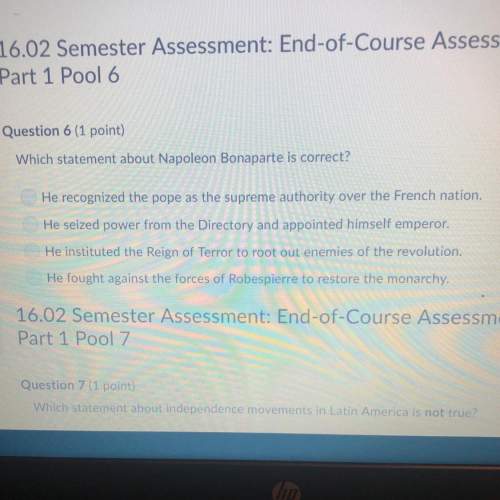Lesson 5: supreme court on speech and press
(1) public speakers are protected by the fi...

History, 01.10.2019 16:20, jaynissiagreen16
Lesson 5: supreme court on speech and press
(1) public speakers are protected by the first amendment, protected by the tradition of freedom of expression in the united states that unequivocally holds that hate speech is protected, unless it is intended to incite imminent violence.
the correct answer is: d
(2) the church notified the local authorities in advance that they intended to organize the funeral, (c) organized the picket on public land adjacent to a public street and complied with all instructions from the police. (f)
the position of the supreme court revolved largely on its determination that the church was talking about "matters of public interest" rather than "matters of purely private importance." (d)
the correct answers are: c, d, and f
(3) the term prior restriction refers to a government restriction on speech or other expression before it can take place.
the correct answer is: b
read more on -

Answers: 1
Other questions on the subject: History

History, 21.06.2019 17:00, pryncesz2859
In a brief paragraph, use information from the lesson to explain the united states' foreign policy after the spanish-american war.
Answers: 1

History, 21.06.2019 17:50, karlaperez8963
Which of the following describes a similarity between the american revolution and the french revolution? o a. both resulted in the creation of constitutions that are still in use. o b. both were influenced by enlightenment thinking about equality. o c. both rose out of the desperation caused by economic collapse. o d. both involved a colony revolting against an imperial government.
Answers: 3

History, 21.06.2019 20:30, austinbeesley9855
Briefly explain one result of either louis napoleon's or otto von bismarck's policies that is not mentioned directly in the speech.
Answers: 2

History, 22.06.2019 06:30, mateotrevino1
How did the soviet union respond to the establishment of west germany and west barlin?
Answers: 2
Do you know the correct answer?
Questions in other subjects:
















